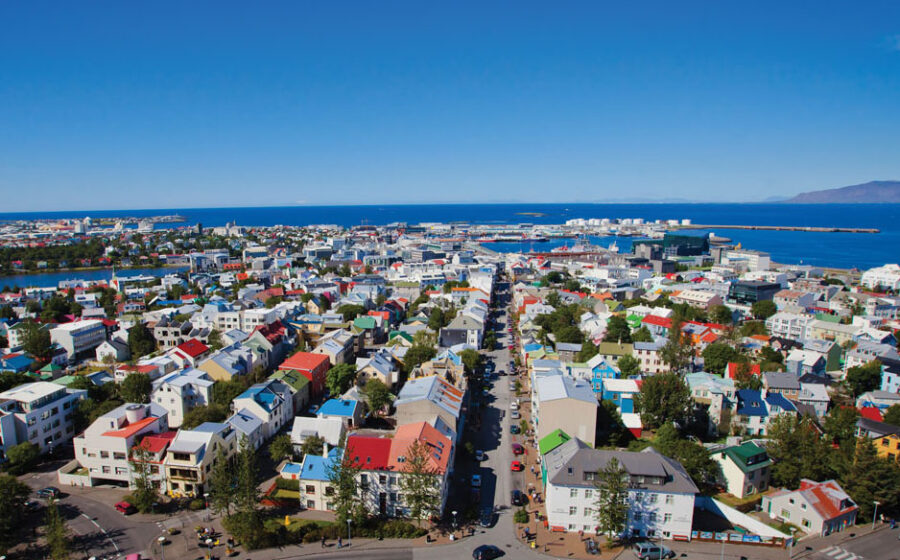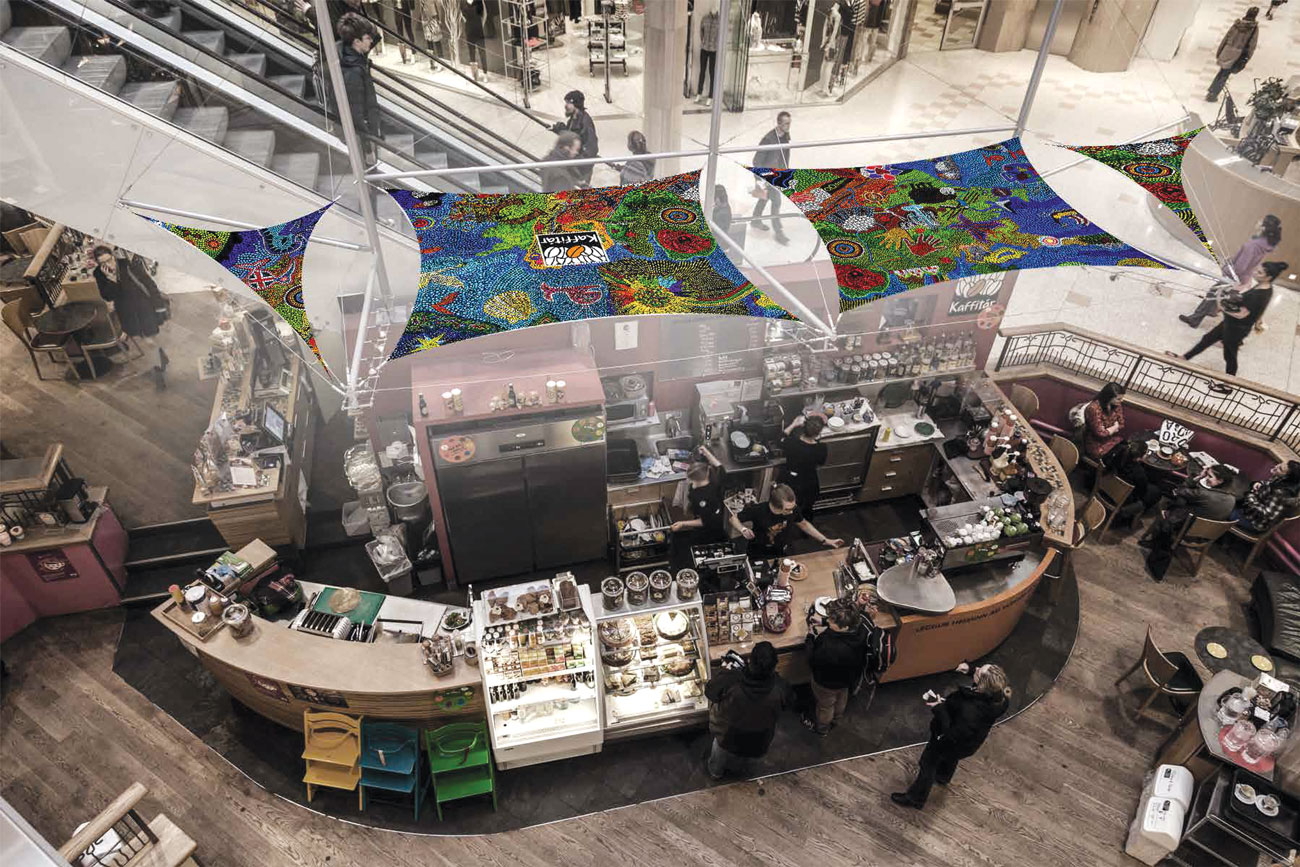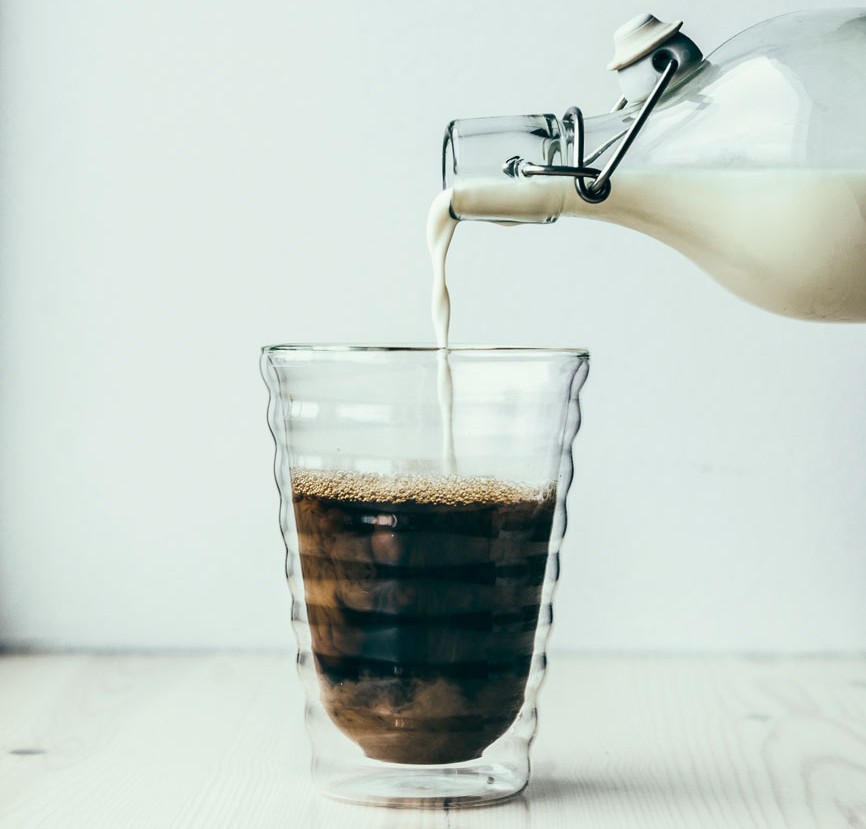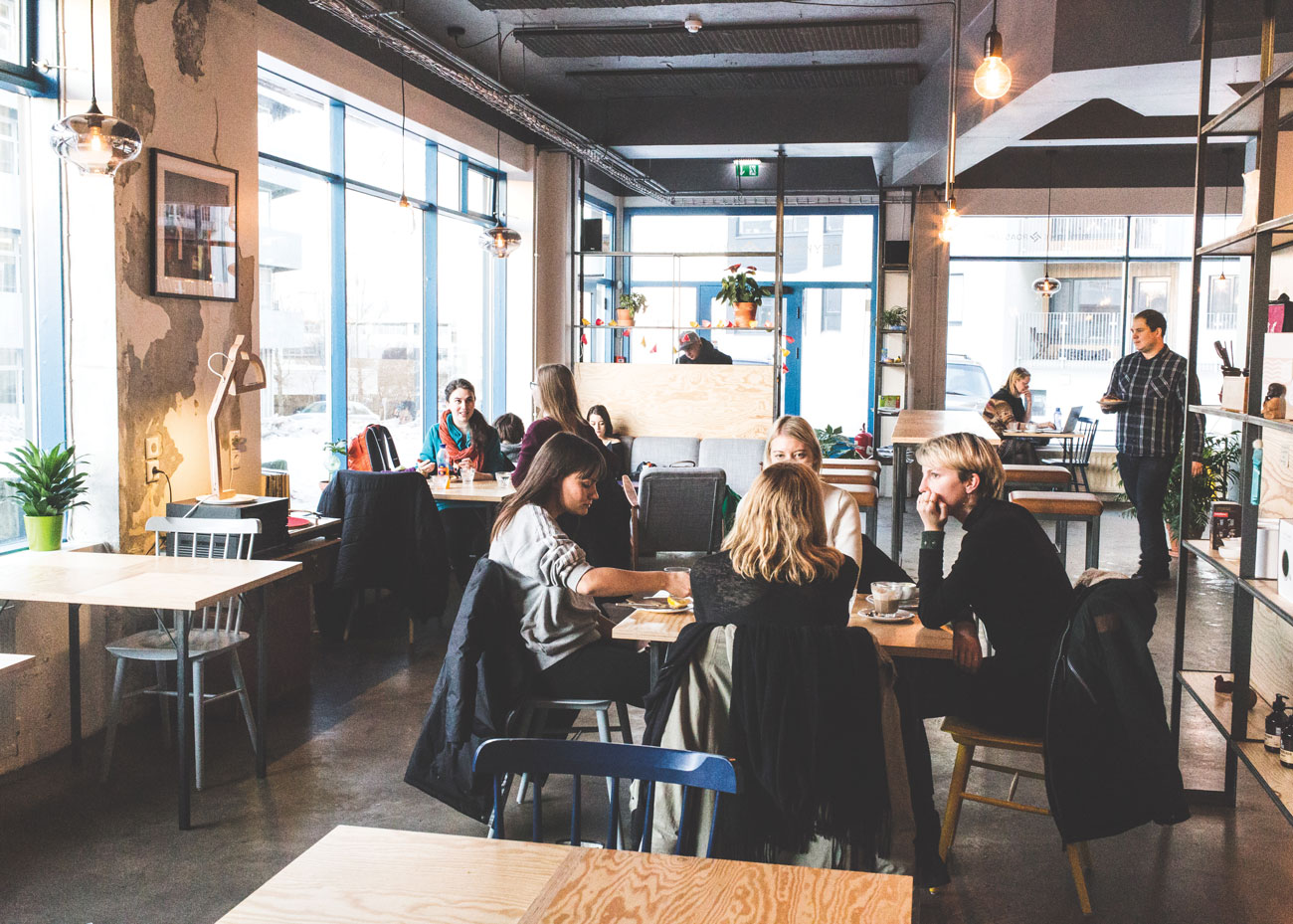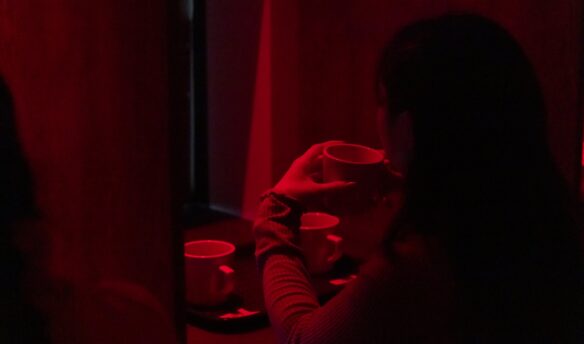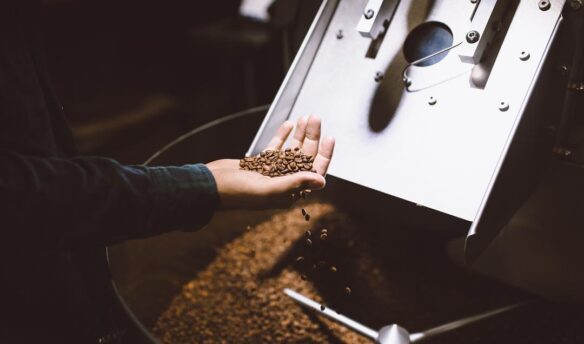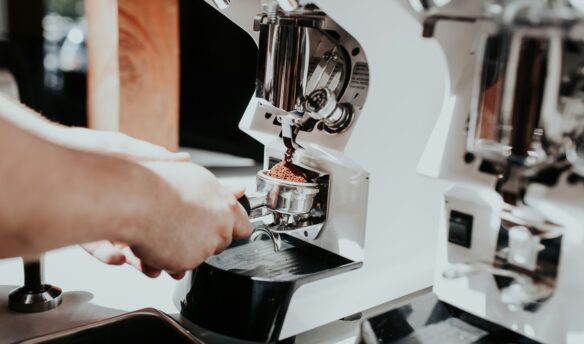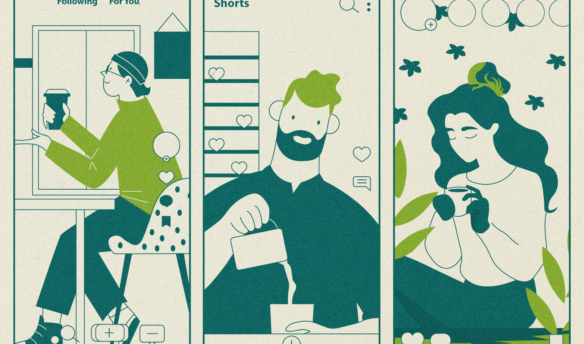[R]eykjavík is a city of art, music, and literature. Artists use buildings as their canvases. Musicians blend global influences to create uniquely Icelandic sounds. And the city boasts a centuries-old literary tradition. Reykjavíkers are a creative bunch full of local pride. That creativity comes through, too, in the city’s coffee culture.
Despite its small size, just shy of 122,000, Iceland’s capital is brimming with locally owned coffee businesses. From the roasters to the coffee shops, Reykjavík’s coffee leaders put quality first. “I don’t know any other place that sells more specialty coffee per capita than Iceland,” says Aðalheiður Héðinsdóttir.
Twenty-five years ago, when Aðalheiður and her husband, Eiríkur Hilmarsson, founded Iceland’s first specialty coffee business, they took Reykjavík’s coffee game to the next level. Aðalheiður learned to roast coffee while living in Madison, Wisconsin, where her husband was in graduate school. Her original idea was to open a café—one café—when they returned home. Instead, she started a coffee movement.
At the time, most of what was coming into Iceland was ground coffee from Scandinavian industrial roasters. Reykjavík didn’t need a new café; it needed a local roaster. In 1990, she and her husband opened the Kaffitár roastery in Keflavík, a community a bit southwest of the capital.
In the beginning, selling the beans to wholesalers proved difficult. Aðalheiður got creative. “We would go to the meetings and show them the acrylic bins where you could see the beans because back then no one had ever seen a coffee bean. It was a different presentation, and a different idea of coffee,” she says. Kaffitár also was the first local company selling single-origin coffees. After a year, people paid attention.
In 1993, Kaffitár opened an espresso bar at the only mall in Iceland. Now, Kaffitár is one of the big guys with eight cafés and a booming wholesale business. One secret to the company’s success is its commitment to selling fresh specialty coffee in grocery stores. “We buy full containers of El Injerto. Most people buy like one pallet, and they price it really high. We buy one container, and it’s in the grocery stores, it’s in our cafés, it’s in our blends,” Aðalheiður says. “I wanted to get good coffee out to everyone and price it moderately.”
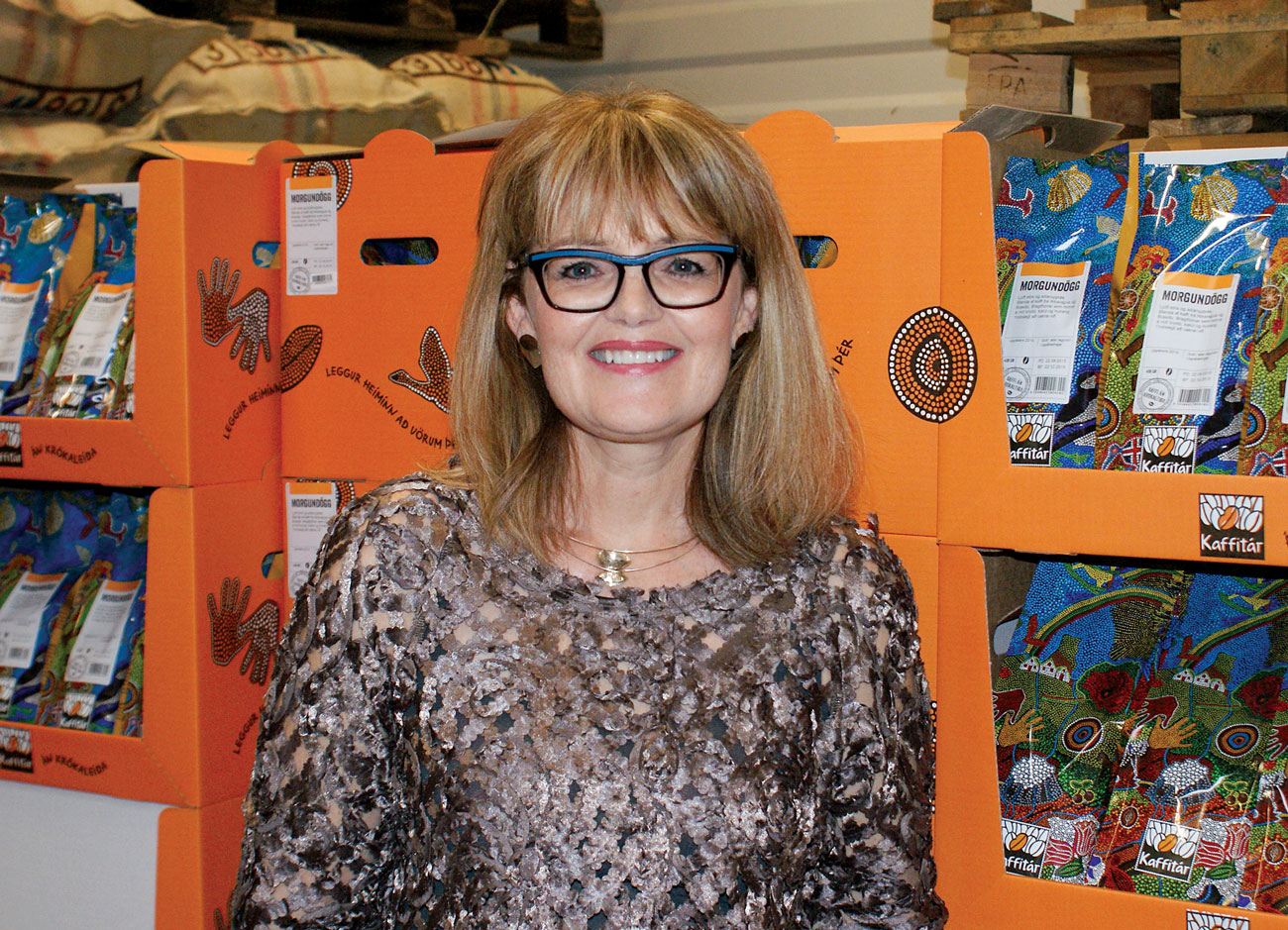
[K]affitár buys 86 percent of its coffee through direct trade. The company works with the Nicaraguan farm Jesus Maria and a collective, which has its own dry mill and a sorting station. Kaffitár also buys directly from growers in Brazil and Guatemala.
When she started the business, Aðalheiður joined the Specialty Coffee Association of America, and she is a founding member of the Specialty Coffee Association of Europe. Through association events, Aðalheiður built relationships that led her to buying direct, and she continues to go on origin trips.
Kaffitár roasts one to one-and-a-half tons a day, and goes through about eighteen containers a year. The skilled baristas use two and three group La Marzocco Lineas for an array of espresso drinks and Hario V60s for pour-overs. They also brew in Fetco carafes that are placed in the center of the café, where patrons can pick up free refills. Two years ago, Kaffitár started a bakery to supply its cafés with fresh food made from scratch.
While there is room for competition in the small community, there are opportunities for collaboration as well. Kaffitár and Te og Kaffi, the city’s other major local coffee brand, have worked to professionalize and modernize the industry, while even helping their smaller counterparts.
“Kaffitár imports very high quality specialty coffee, and a few roasters buy their green from them. That is a great help to small roasters because they cannot buy a large amount of green. Kaffitár and Te og Kaffi also are very helpful about importing machinery, like espresso machines and grinders,” says coffee professional Sonja Björk Grant.
Sonja, who is an Icelandic coffee pioneer in her own right, got her start at Kaffitár, where she worked as a manager and a barista-competition coach. She has trained several of Iceland’s national barista champions. In 2008, Sonja launched Kaffismiðja Íslands café and roastery with Ingibjörg (Imma) Jóna Sigurðardóttir. As Iceland’s first third-wave coffee shop, Kaffismiðja Íslands gained a strong following. They were the first shop in town doing in-store roasting as well.
In many ways, Icelanders consider themselves typical Scandinavian coffee drinkers. Arabica beans are the standard, and washed coffees are the norm. While roasters skew between light to medium roasts, they continually experiment to get the most out of their beans. Since importing beans to the island is costly, creative roasting is key. “I think the trends with roasters are now to roast with different processing methods,” says Sonja. “They might be focusing on two different roast profiles to get two different characteristics out of the same origin.”
In 2013, Sonja sold her share of Kaffismiðja Íslands and started her consultancy and training company, Kaffibrugghúsið. Now, she travels the world to train baristas and work with the SCAE on judge certifications and the World Competitions Education Program. Sonja has judged competitions in thirteen countries last year alone, including the World Barista Championship 2015 in Seattle and World Coffee in Good Spirits 2015 in Gothenburg, Sweden.
Participating in the global coffee community adds to Sonja’s perspective of Reykjavík’s coffee culture. She has witnessed many changes in the industry, and what excites her most is that baristas in Iceland have gained distinction. “I’m very proud to think back to when we used to be ‘just working in a café’ and the day that we changed into being baristas, or kaffibarþjónar, in Icelandic,” says Sonja.
[R]eykjavík Roasters’ co-owners certainly have made names for themselves as baristas and coffee innovators. When Sonja moved on from Kaffismiðja Íslands, Imma recruited new partners.
Imma, who had worked for Kaffitár and Te og Kaffi, and won the Icelandic Barista Championship in 2006 and 2007, had a wealth of coffee experience. Torfi Þór Torfason, who is a chef by training, developed his roasting skills at the Coffee Collective in Copenhagen, where he also learned the art of competition. Torfi is the 2011 Danish Brewers Cup Champion, 2012 Danish Barista Champion, and 2013 Icelandic Barista Champion. With Torfi, Þuríður Sverrisdóttir, and Tumi Ferrer, the 2011 Icelandic Barista Champion, onboard, Reykjavík Roasters was born.
In August, Reykjavík Roasters opened its second shop. The original shop on the street Kárastígur is a lovely space with mismatched tables and chairs and even seating at a vintage sewing table. It can barely contain the line of eager customers—locals as well as tourists. Aside from the secondhand record player, the best feature is the turquoise, six-kilo Giesen roaster, where Torfi roasts. They roast about 200 kilos a week.
“We are focusing on Scandinavian roasts. So, it’s a little more of a light roast with more acidity, more sweetness. We’re the only company in Iceland that’s doing that,” says Imma.
They’re not just imitating their Nordic neighbors, though. “We roast for our palate,” says Imma. And, the local water. “If you taste coffee from Denmark, it tastes totally different with our water,” says Þuríður. Unlike Denmark, where the water is considered hard, Icelandic water is quite soft and the pH level is between eight and nine, which is quite high.
Reykjavík Roasters has featured coffees from Burundi, Colombia, and Nicaragua, with last year’s La Esperanza from El Salvador being among their favorites. By roasting in-house, they’ve gained the hearts of customers who want to consume local. “This area is all about doing things local. They want to buy their vegetables local and their coffee local, and so when we’re roasting they get so excited about it because they can see that we’re doing it right here,” says Imma.
Kaffihús Vesturbæjar definitely focuses on keeping things local. The café opened in October 2014, and it’s the first such establishment in Reykjavík’s quiet Vesturbæjar area. Owned by a group of neighborhood entrepreneurs that includes talk show host Gísli Marteinn Baldursson, Kaffihús Vesturbæjar serves local meat, vegetables from Icelandic greenhouses, and, of course, local coffee.
“We call this the first real neighborhood café in Reykjavík, because all the places where you can get good coffee are downtown,” says Gísli.
In a quest to promote sustainability, Kaffihús Vesturbæjar works with local vendors such as Reykjavík Roasters. The café has used Reykjavík Roasters’ beans from Brazil, Nicaragua, and El Salvador, which are roasted specially for them. Sometimes the café uses different beans for its various brewing methods—drip, espresso, Hario V60, and AeroPress—or the same beans for all drinks. The cortados are a favorite. They’re sweet and smooth and made with milk from a small, local, organic farm.
“I remember when we couldn’t get a decent espresso in town, maybe twenty years ago. It has changed a lot in twenty years. There’s basically a few idealists who just really wanted to make good coffee,” says Gísli.
[C]afé Haiti is a downtown shop with a tropical feel. This local favorite features homemade food, conversation, live music, and strong coffee. It’s a place where people come to meet and stay a while. Café Haiti is owned by Elda Thorisson-Faurelien, who is originally from Haiti.
Elda introduced something new to Reykjavík when she began roasting Haitian beans at home and selling them at the street markets and the farmers’ market. In 2009, Elda and her husband opened Café Haiti on Geirsgata at the Old Harbour.
Paintings of scenes of Haiti hang behind the bar, where Elda pulls espresso shots on the Cimbali M31 Dosatron, and brews hearty Turkish and Arabic coffee. She roasts about four or five kilos of Arabica beans a day (and double that during summer).
Not only does her café represent Elda’s love of her home country and her culture, but for many years she sold only beans from there. “At first I bought beans from Haiti, and now I buy beans from Guatemala because it’s too expensive for me to buy the beans from Haiti,” says Elda. Her plan is to buy more Haitian beans when she can. “It’s important for me. I need to help people,” she says.
Reykjavík is a small city with a small coffee scene, but maybe that’s why customers are so loyal to their local brands. From Café Haiti’s jam sessions to Kaffitár’s weekly tango nights to customers watching beans roasting at Reykjavík Roasters, the city’s coffeeshops provide a place where locals and coffee professionals can connect.
“I love the Icelandic customer base. They’re so much fun,” says Torfi. “We have good friends who started off as regulars. It’s like extended family.”
Being small has advantages.
—Willona Sloan is a writer and educator based in Washington, DC.


